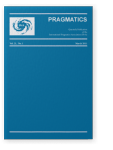Vol. 21:1 (2011) ► pp.111–125
Examining the rhetorical structure and discursive features of letters of leniency as a genre
This paper presents a genre analysis of 73 letters of leniency, which were obtained in two United States federal district courthouses. The primary objective of this type of genre is to persuade a judge to be lenient during the sentencing of a defendant, such as by reducing or commuting the defendant’s sentence. This paper examines how writers of this genre structure their letters and use discursive features, in particular linguistically-realized politeness and appeals to the judges’ faith, to make a request for leniency. The findings of this study show that the rhetorical and discursive features of letters of leniency follow the conventions of the court, which demands the observance of the judge’s face through the use of politeness. This study also shows how the notion of faith is exploited in this type of genre to make a persuasive request or, more often, to follow-up a request (post-request) for leniency.
